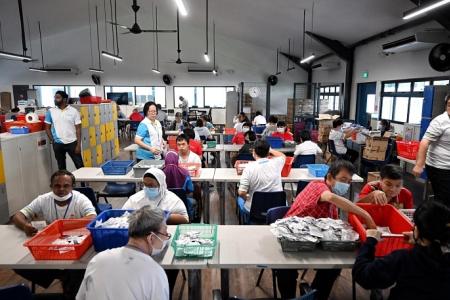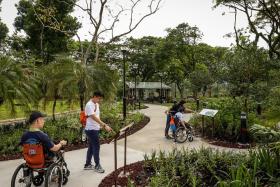Minds to expand services at all its centres from April 2025
Adults with intellectual disabilities will soon be able to receive the services they need at the Minds centre nearest to their residence, instead of travelling long distances to do so.
Minds is revamping its service model for people with intellectual disability aged 18 and above, to provide expanded services at all 13 of its centres and bring support closer to clients.
The expanded services will be rolled out progressively from April 1, 2025, and they are expected to be available at all 13 centres by March 2027.
The social service agency announced the move on Nov 15 at the reopening of the Minds Idea Employment Development Centre in Hougang, which has been upgraded and renamed Minds Regional Hub (Hougang).
Located at 29 Rosyth Road, the Hougang hub has specialised units for ageing clients and those with both autism and intellectual disability, among other things.
Under the previous service model, clients could have gone to an employment development centre for vocational training and to Minds hubs for activities such as painting and cooking. With the new model, they can go to a regional hub for both services.
As part of the service revamp, Minds’ largest centres, known as employment development centres, will be referred to as regional hubs instead, while training and development centres will be known as community hubs, and the smaller Minds hubs will be referred to as satellite hubs.
All three types of hubs will have diagnostic assessment, future care planning, caregiver support, complex case management and befriending. Regional hubs and community hubs will offer vocational training on top of these.
Minds chief executive Kelvin Koh said this new “person-centred” service model is a shift from the previous programme-centric model, allowing Minds to address each client’s specific needs. This can “drive personal growth and foster lasting positive impact for both individuals and the community as a whole”, he added.
Speaking at the reopening on Nov 15, Minister for Social and Family Development Masagos Zulkifli said the new hub supports two recommendations released by the Taskforce on Community Living for Persons with Disabilities in September.
These are: helping people with disabilities and their caregivers review their plans as they navigate life transitions, and enhancing services to enable those with disabilities to be better equipped to live within the community, acquire vocational skills and receive care services through a single touchpoint.
“I am excited to see how our regional and person-centred approach will continue to transform the experiences of persons with disabilities and their caregivers,” Mr Masagos said.
Minds Regional Hub (Hougang) will offer a lifelong learning curriculum with core modules such as activities of daily living, elective modules such as financial management, and interest-based modules such as dance.
The new hub has also set up two new specialised units – an activity workspace called Oaktree to support ageing clients who are 45 and above, and the autism spectrum disorder-intellectual disability (ASD-ID) training unit to serve those with higher support needs.
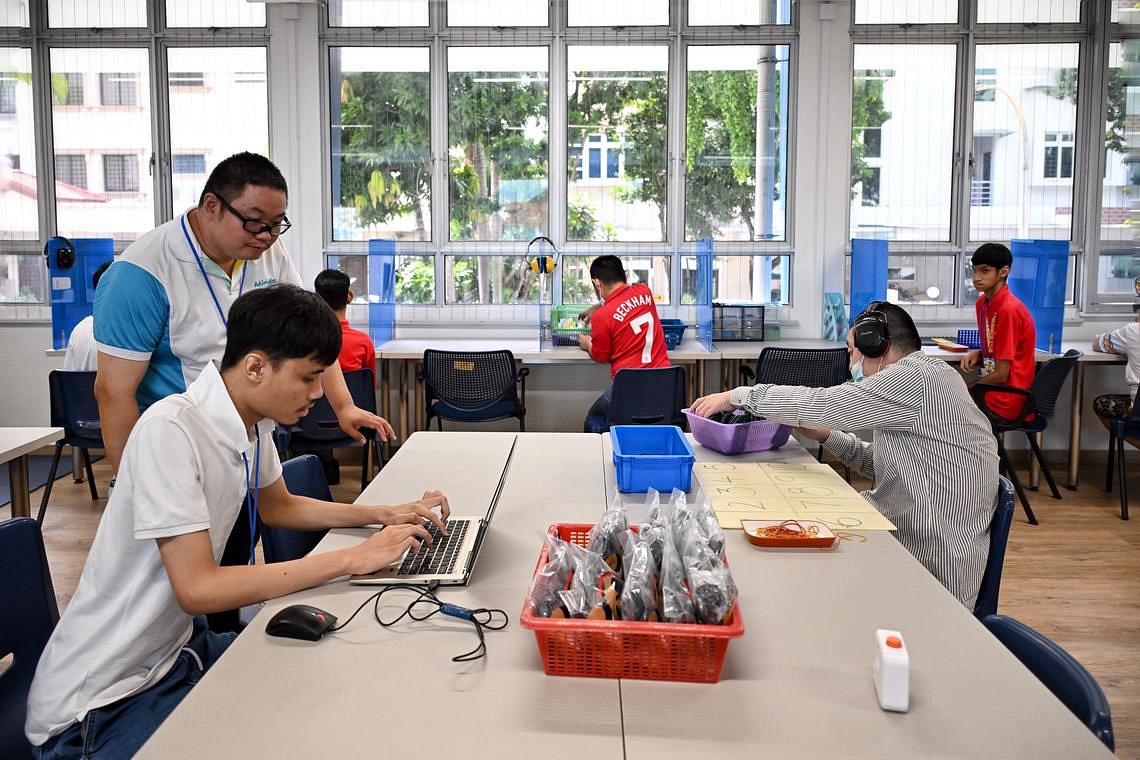
The specialised unit for ageing clients focuses on providing therapeutic activities such as colouring that promote their mental and physical well-being. The hub also has accessibility features such as an expanded driveway, ramps, handrails, a lift, sheltered walkways and levelled flooring.
The ASD-ID training unit is designed to enable clients with autism and intellectual disabilities to work without distractions. The room is equipped with individual workstations with schedules, a sequence of tasks and a timer, providing a structured environment with minimal sensory input so that clients with challenging behaviours can better focus on learning. The room also includes a calm corner where clients can regulate their sensory needs.
The Hougang hub also has amenities such as a basketball court, futsal court and smart gym to encourage clients to adopt healthy lifestyle habits.
The gym is equipped with HUR machines, which use air pressure in place of traditional weights, and allow clients to do low-impact exercises suitable for their rehabilitation.
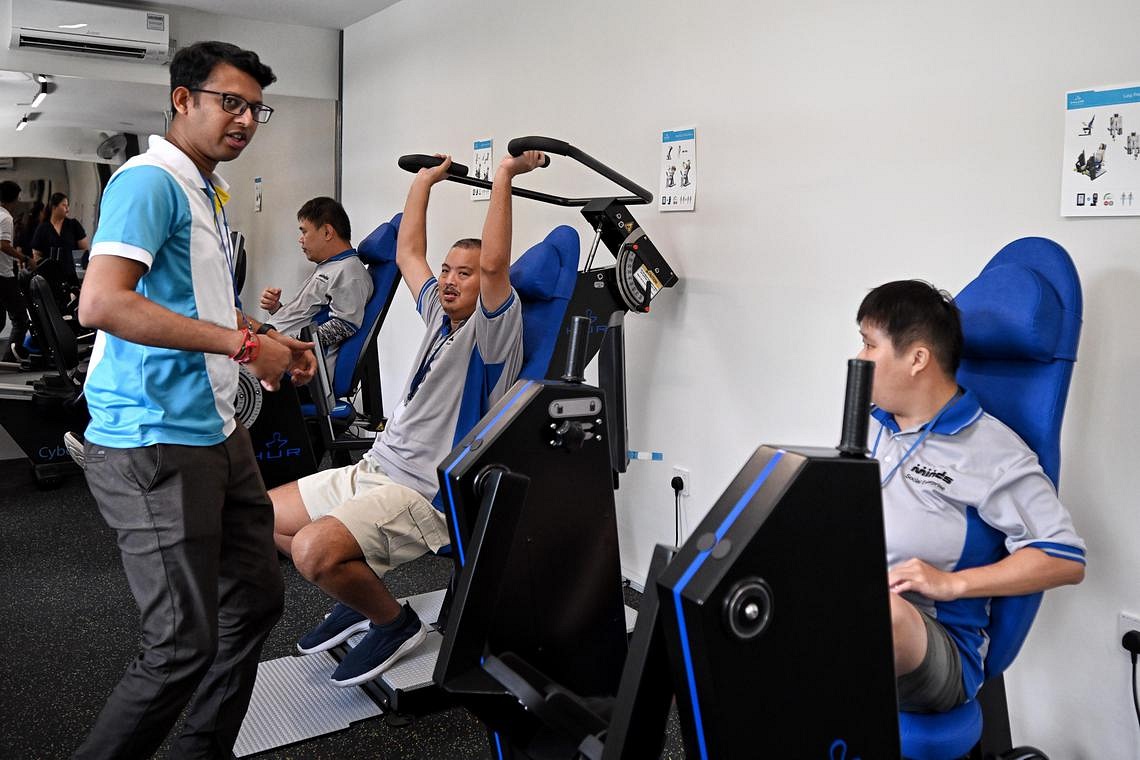
Additionally, the hub has a communal space with Minds Social Enterprise merchandise and a thrift shop with pre-loved items from the public.
Mr Quek Hong Choon, director of the east cluster at Minds, said the agency will be hosting regular events and workshops where people with intellectual disabilities and their families can connect with the community.
Minds’ social enterprise farm at the Hougang hub will upgrade its greenhouses with hydroponic and food digester systems, and expand its capacity to allow more volunteers to participate in its eco-farming programme.
Minds Farm has partnerships with North East Community Development Council, where 18 clients were employed for over a year to manage the council’s community garden.
The public can participate in terrarium workshops and a farmers’ market at the hub.
One of the trainees at the new hub is 30-year-old Darren Teo, who helps to make merchandise for the Minds Craft social enterprise.
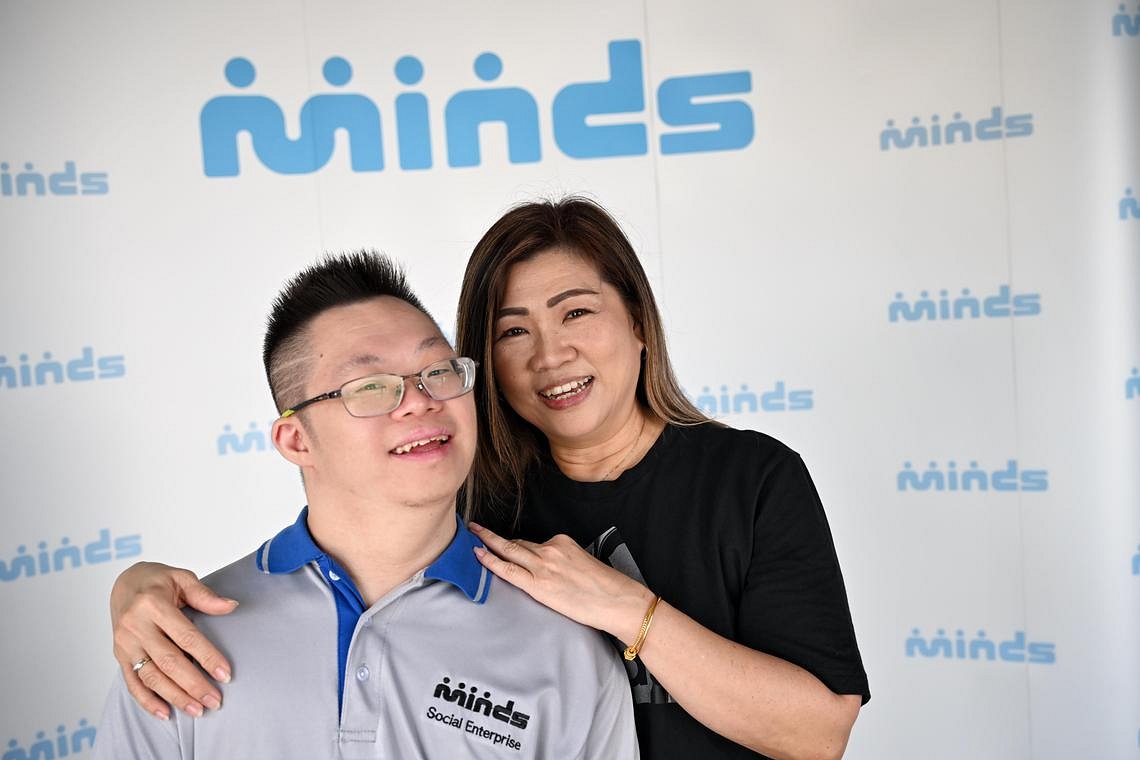
He has been going to Minds Craft social enterprise to develop vocational skills and employability since graduating from Minds Fernvale Gardens School 12 years ago.
His mother Jenny Lim, who is 55 and works as a Grab private-hire driver, drives him to the workshop every day.
“The instructors are kind-hearted, and I’m grateful he’s taken care of, including his daily lunch, and I can do my own things too,” she said. “I trust that the centre gives him a better future.”
Get The New Paper on your phone with the free TNP app. Download from the Apple App Store or Google Play Store now

